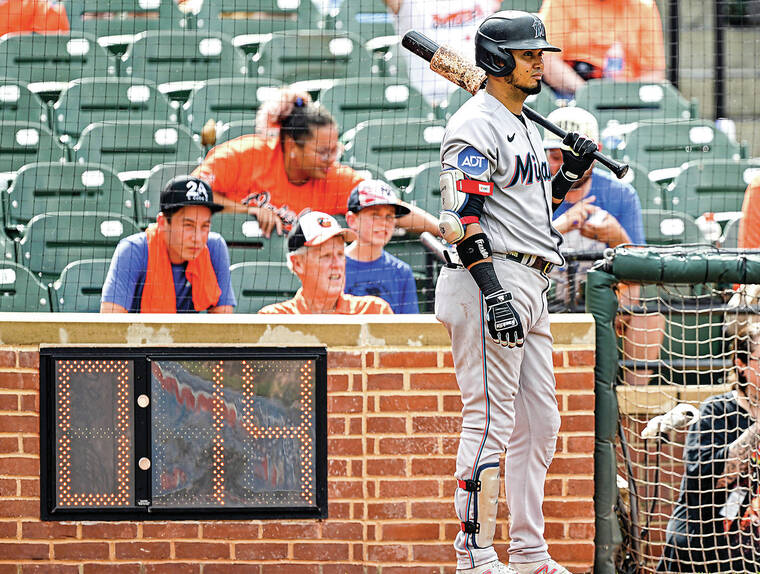MLB game time drops 24 minutes to 2:40 with pitch clock. Players steal most bases since 1987
NEW YORK — The average time of a nine-inning major league game dropped to 2 hours, 40 minutes in the first year of the pitch clock, a 24-minute decrease in a season of change that resulted in a spike in batting average and the most stolen bases in nearly 40 years.
Left-handed hitters benefitted from the new restrictions on defensive shifts, runners took advantage of the slightly decreased distance between bases, and average fastball velocity set another record.
ADVERTISING
The average game time dropped to its 1985 level after passing 3 hours for the first time in 2016. It reached a record 3:10 in 2021 before the introduction of the PitchCom electronic pitch-calling device helped bring it down to 3:04 last year. Over the objections of the players’ association, MLB instituted a pitch clock set at 15 seconds with the bases empty and 20 seconds with runners on base.
“It took some getting used to, but once you get used to it the game’s a lot faster,” Minnesota shortstop Carlos Correa said. “There’s not wasted time. The pace was great, so I think it’s here to stay.”
There were nine 3 1/2-hour games, down from a record 390 in 2021.
“I think it’s gone smoothly,” Los Angeles Dodgers catcher Will Smith said. “It’s nice for you to get home a bit earlier. You don’t have the 4-hour games anymore.”
Miami had the fastest average at just under 2:35, while Baltimore and San Diego topped the majors at 2:44.
MLB’s clock will remain the same for the postseason, which averaged 3:23 for nine-inning games last year.
“There are bigger moments, bigger times where we do need to step back and think about something we just did or think about something that we’re going to be doing pitch-wise or swing-wise,” said Zack Wheeler, who starts Philadelphia’s playoffs opener against Miami on Tuesday. “I’m not a big fan of the pitch clock, but it is what it is.”
Phillies catcher J.T. Realmuto thought about how to cope with the clock in October.
“We are going to have to be a little more cognizant of taking the time and maybe using our extra mound visits or finding ways to slow the game down for our pitchers,” he said.
As part of the clock, MLB instituted penalties for violations that included balls against pitchers and strikes against batters. The New York Mets led with 57 violations, followed by Tampa Bay (52), Pittsburgh (51), San Diego (48) and Miami (47).





